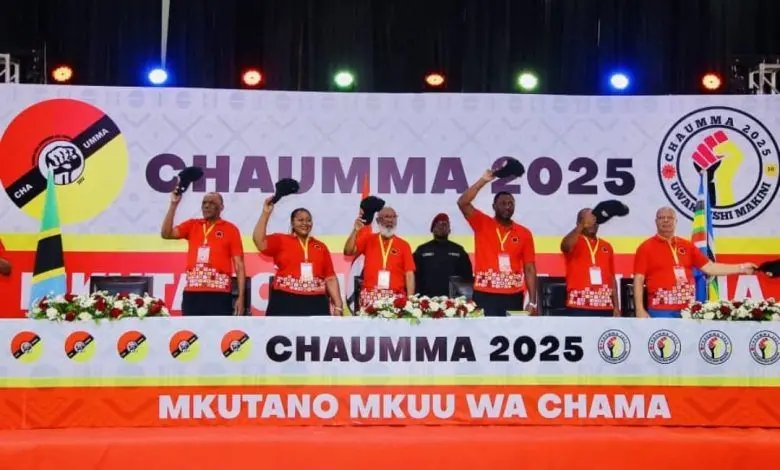CHAUMMA’s social sector agenda: Proposed reform overview

DAR ES SALAAM: AS the 2025 General Election draws closer, political parties in Tanzania are laying out their visions for the country’s future.
Among them, the Chama cha Ukombozi wa Umma (CHAUMMA) has unveiled a manifesto that places strong emphasis on social sector reforms, particularly in education, health, energy and agriculture.
The pledges highlight broad aspirations aimed at improving social welfare, reducing inequalities and expanding opportunities for citizens. One of the notable promises in the education sector is the commitment to recruit sufficient numbers of teachers in order to achieve a ratio of no more than 45 students per classroom.
This proposal seeks to address long-standing concerns about overcrowded classrooms, which have often limited teacher-student interaction and quality of learning.
CHAUMMA further promises to provide free meals in all public primary and secondary schools, a measure expected to improve attendance and concentration among pupils from low-income families.
In addition, the party outlines plan to improve access to clean and safe water in schools while ensuring the construction of hygienic sanitation facilities.
Another important pledge is the allocation of capitation grants to cover the cost of sanitary pads, with a promise to provide them for free to schoolgirls.
ALSO READ: ELECTION 2025: Media’s crucial role in Tanzania’s general election
This measure is presented as a way of safeguarding dignity, health and equal learning opportunities for female students. On health, the manifesto aligns with the Abuja Declaration target of allocating 15 per cent of the national budget to the sector.
The plan also envisions enrolling every Tanzanian into a universal health insurance scheme, ensuring equitable access to basic health services regardless of income level. The party proposes to include food provision for hospitalised patients as a mandatory service covered by health insurance, which could reduce financial burdens for families and improve patient care.
The manifesto also touches on energy access, pledging to reduce electricity connection costs for households, schools and health centres. It further promises to introduce flexible instalment payment systems, while encouraging the use of clean cooking solutions.
To promote wider adoption of renewable energy and efficient stoves, CHAUMMA proposes scrapping taxes on gas appliances, improved cookstoves and other clean energy technologies. For Zanzibar, the manifesto highlights targeted measures to align education with both local and international job markets.
The proposals include a focus on science, mathematics, ICT and foreign languages, coupled with continuous training for teachers.
CHAUMMA also pledges to establish a special social fund for teachers in Zanzibar, aimed at strengthening their welfare On agriculture, the manifesto promises to provide subsidised inputs such as seeds and fertilisers to smallholder farmers, while removing bureaucratic hurdles in accessing them. It also outlines plans to establish irrigation schemes—two in every constituency—to boost production.
Furthermore, small-scale farmers are promised access to affordable agricultural insurance and credit facilities, with at least 600 farmers per district targeted for support.
While implementation would depend on resources, governance capacity and political will, the pledges illustrate an agenda focused on expanding public services, protecting vulnerable groups and improving livelihoods. For voters, the proposals present a platform that places social welfare at the centre of the country’s development priorities.





